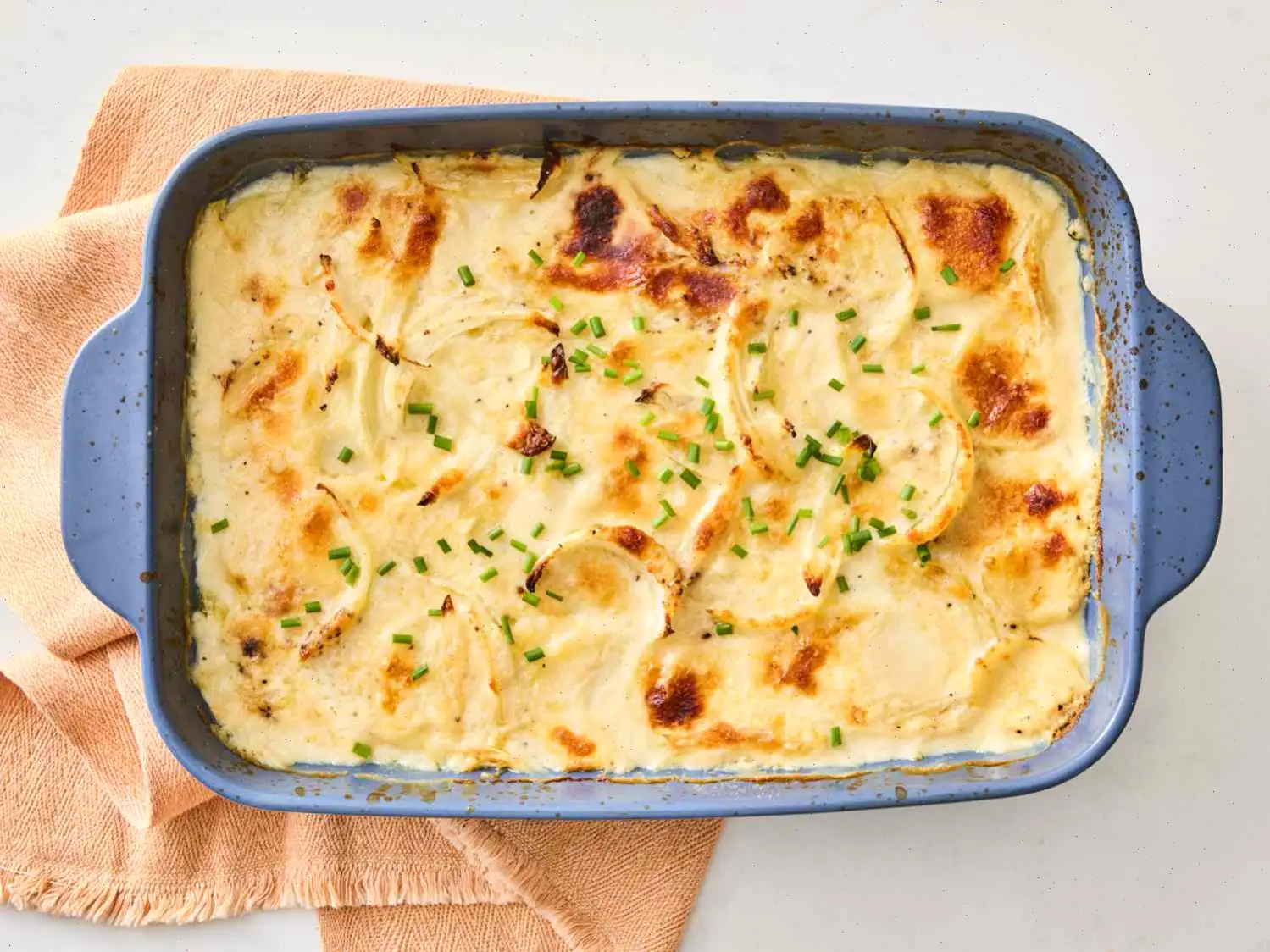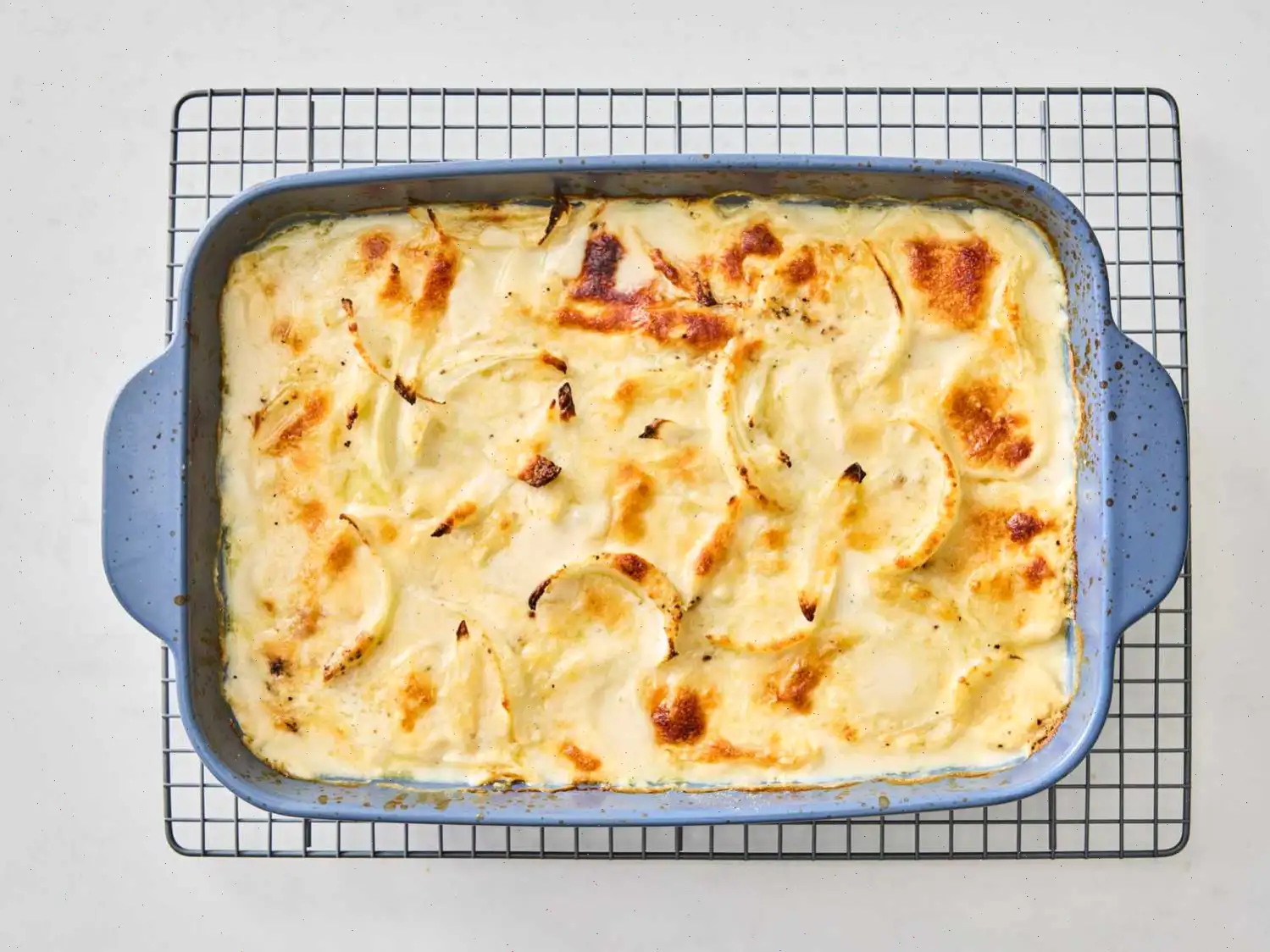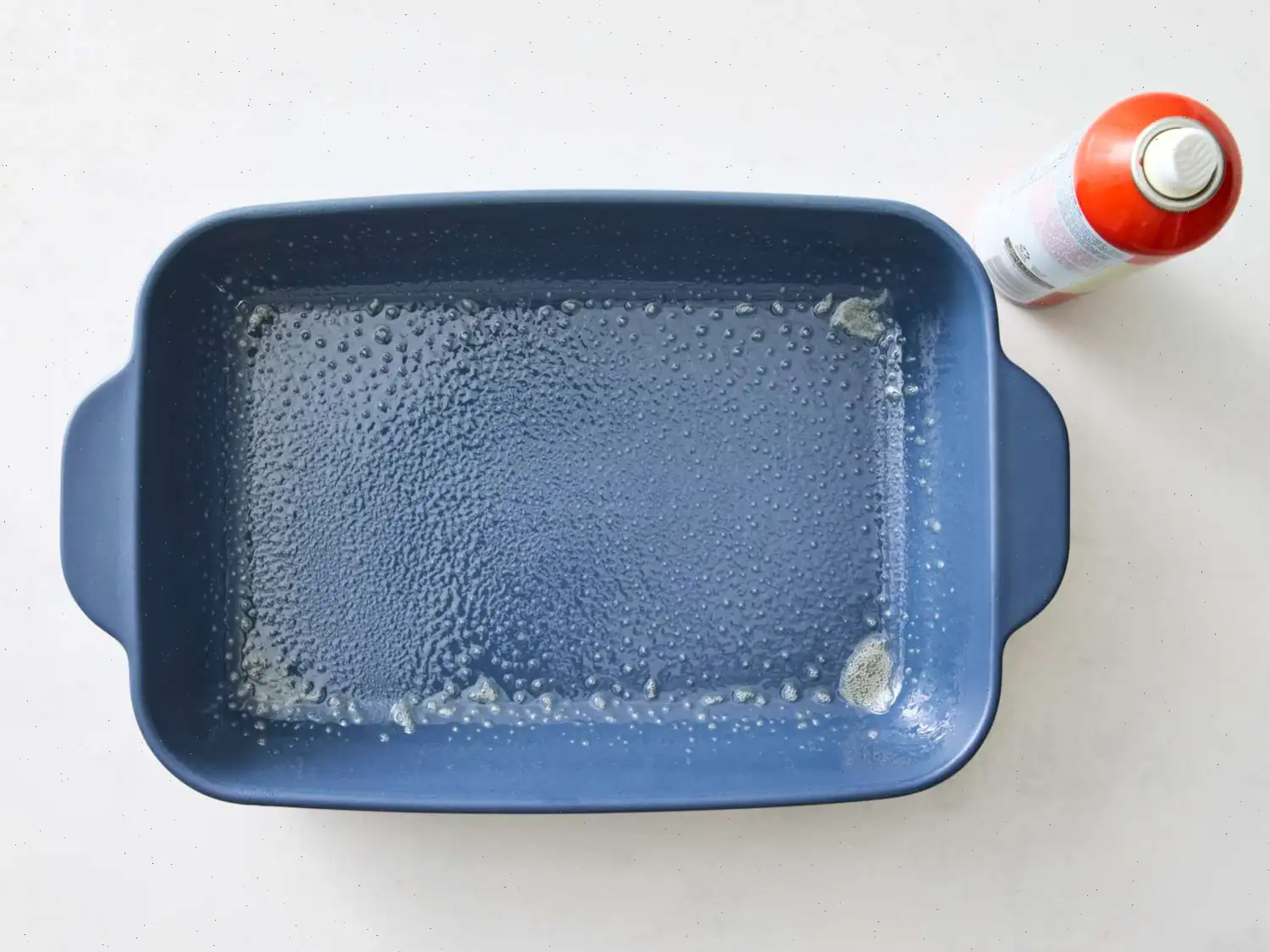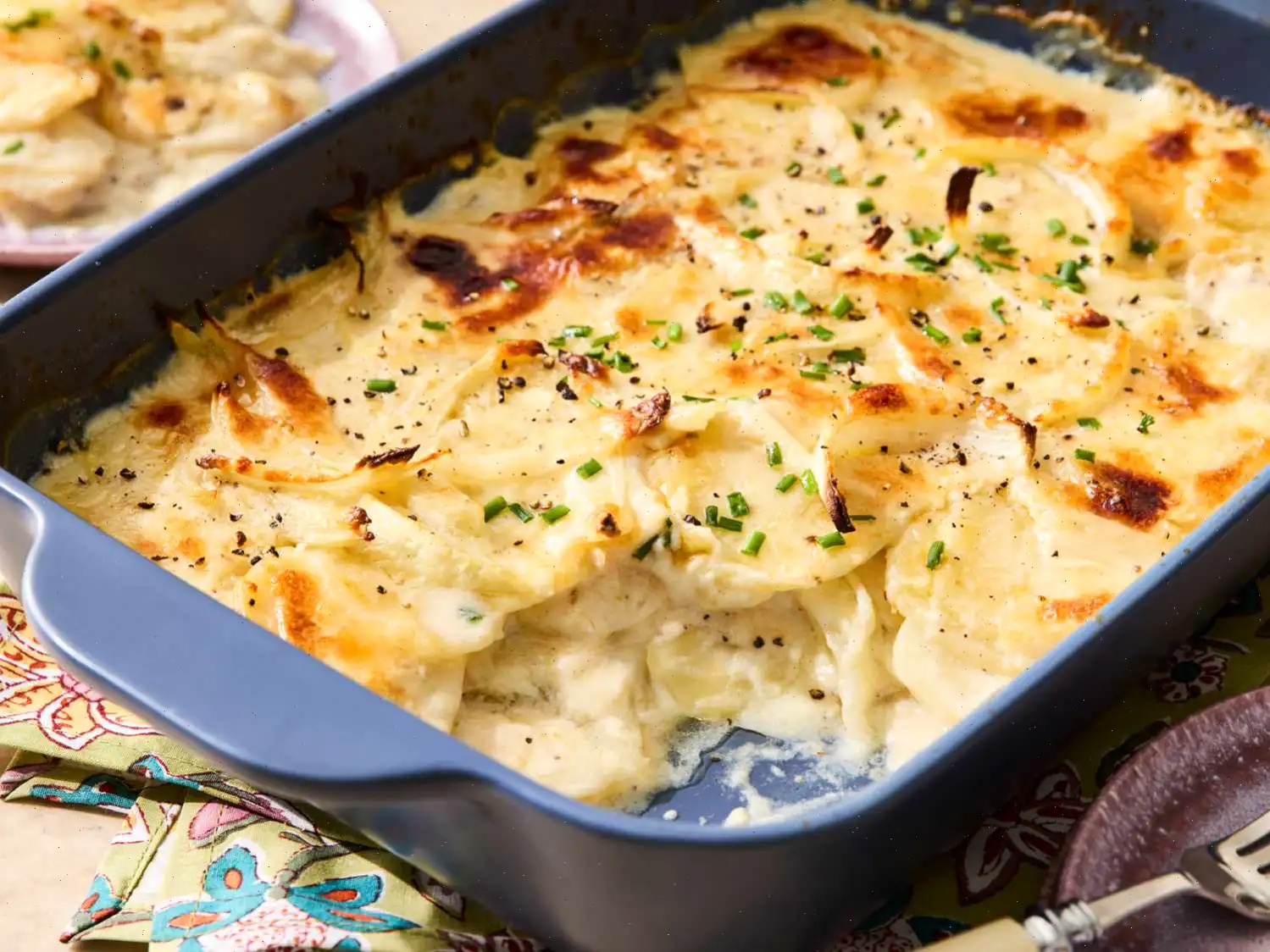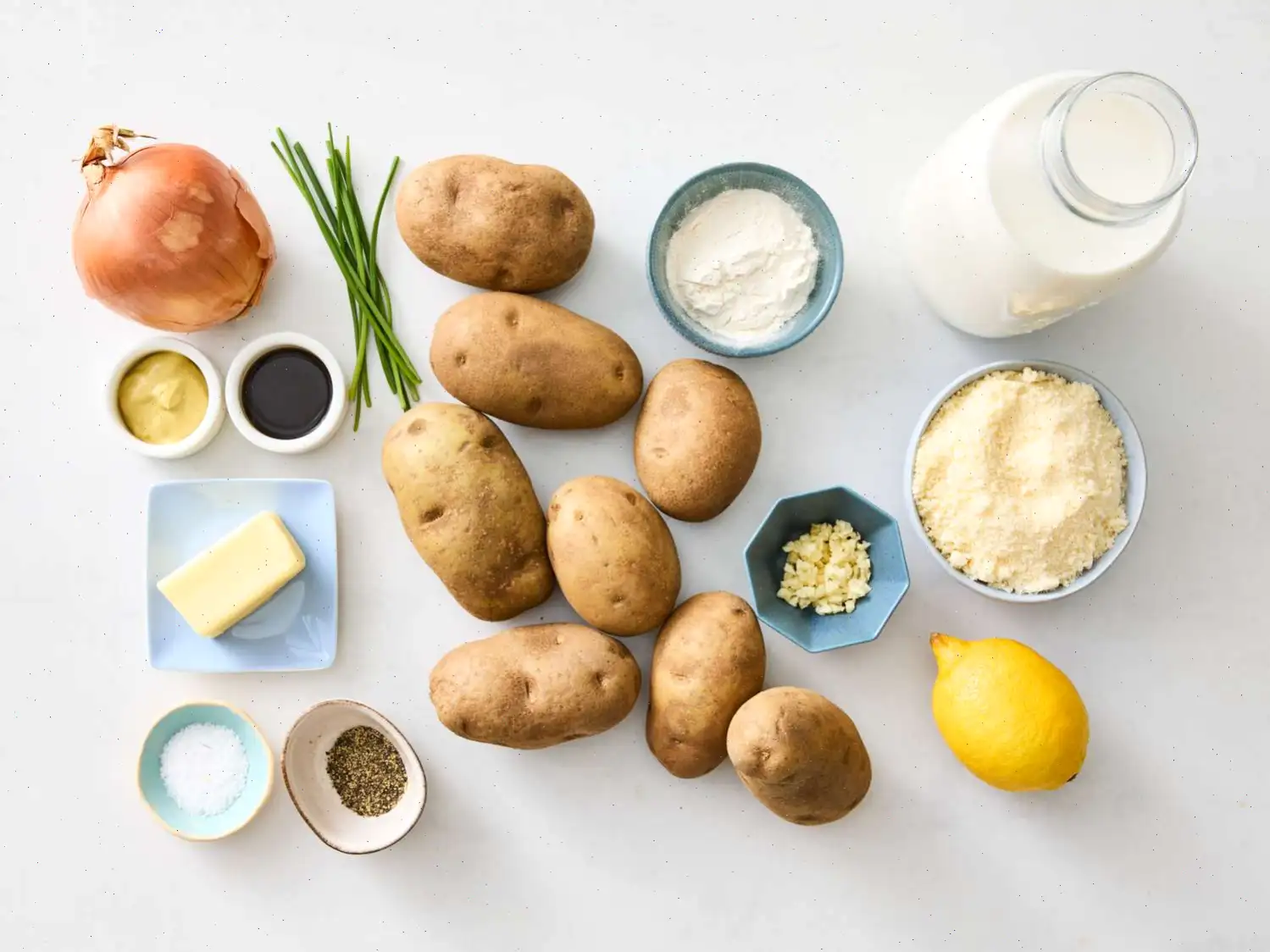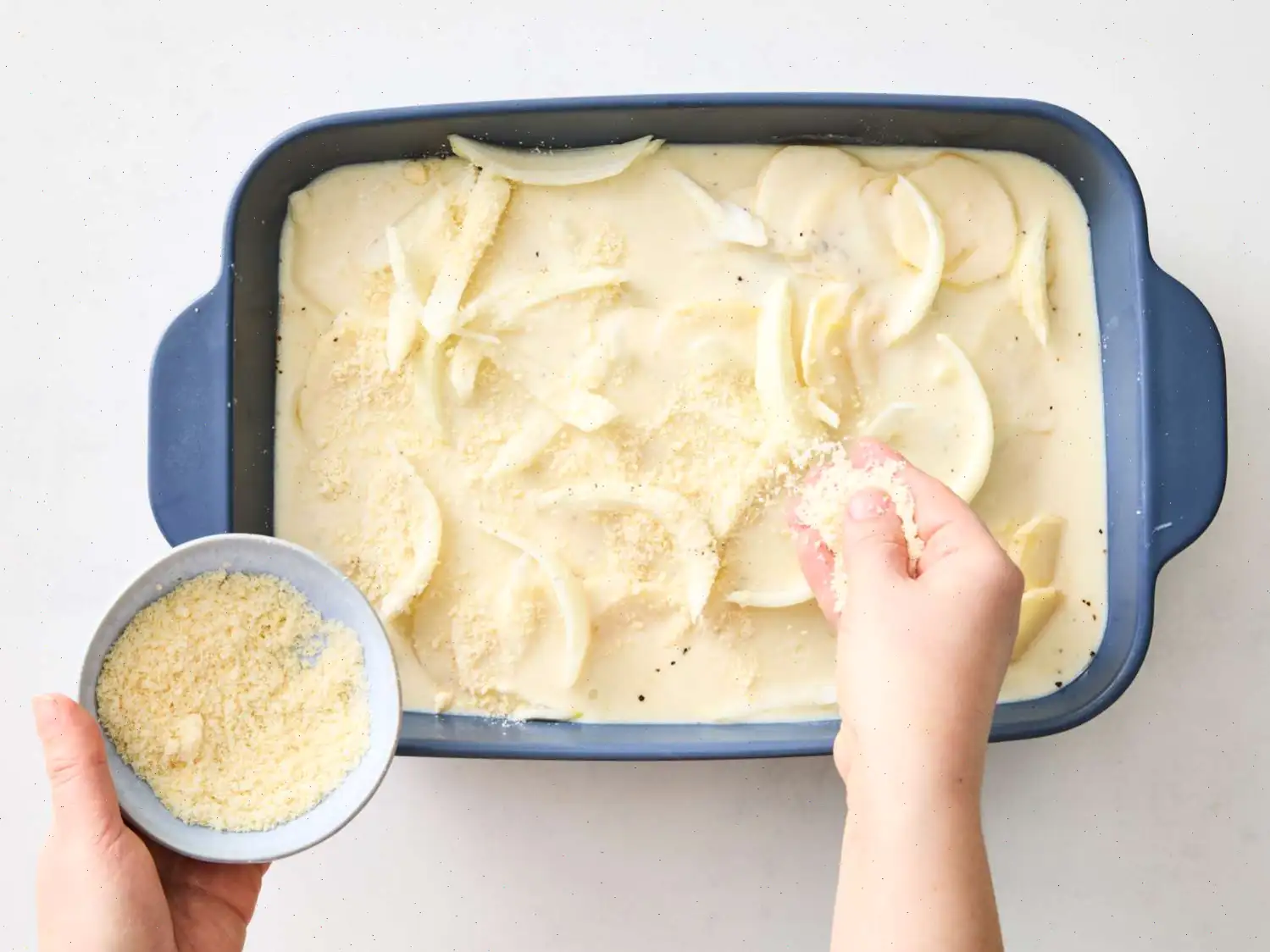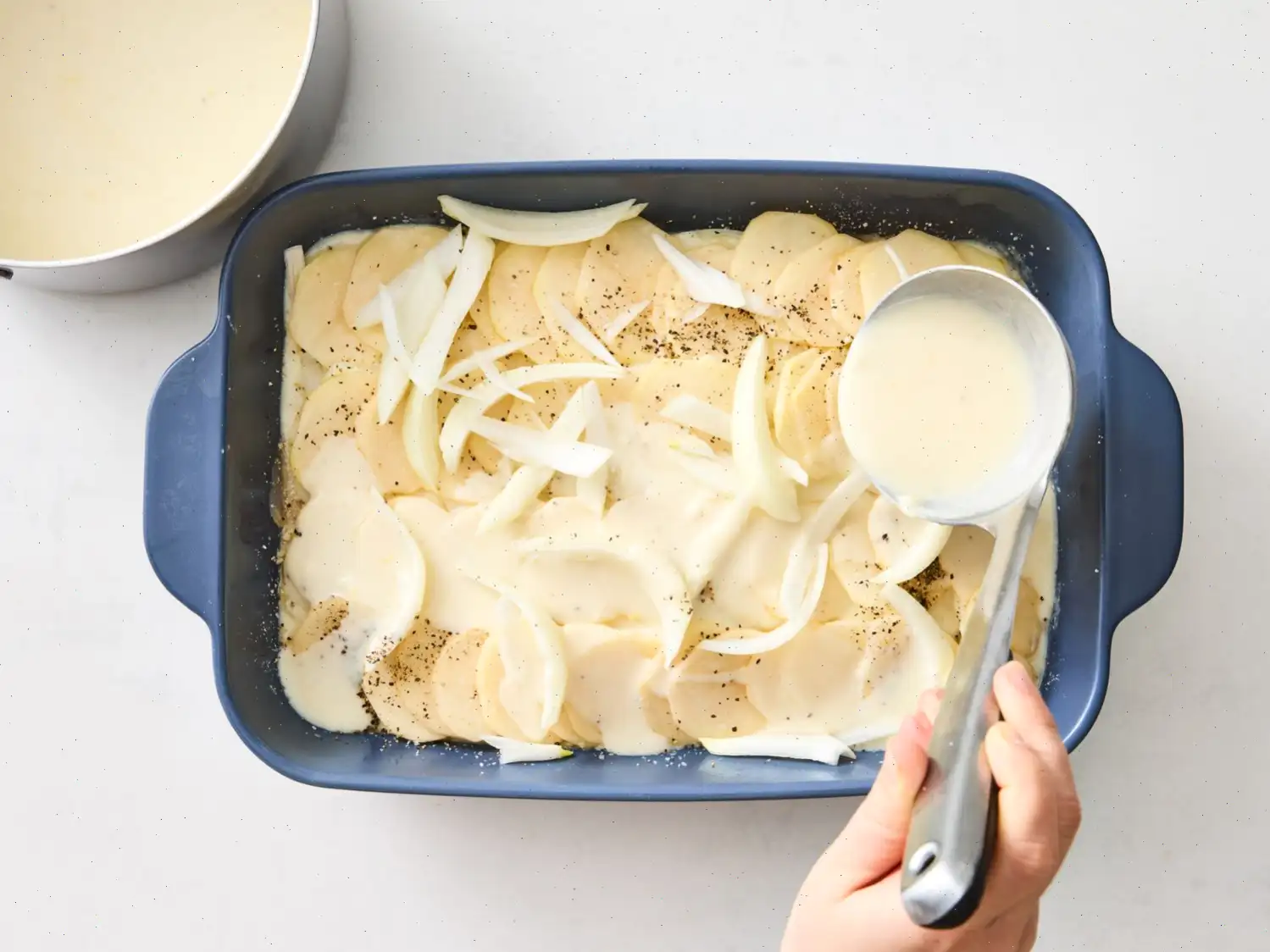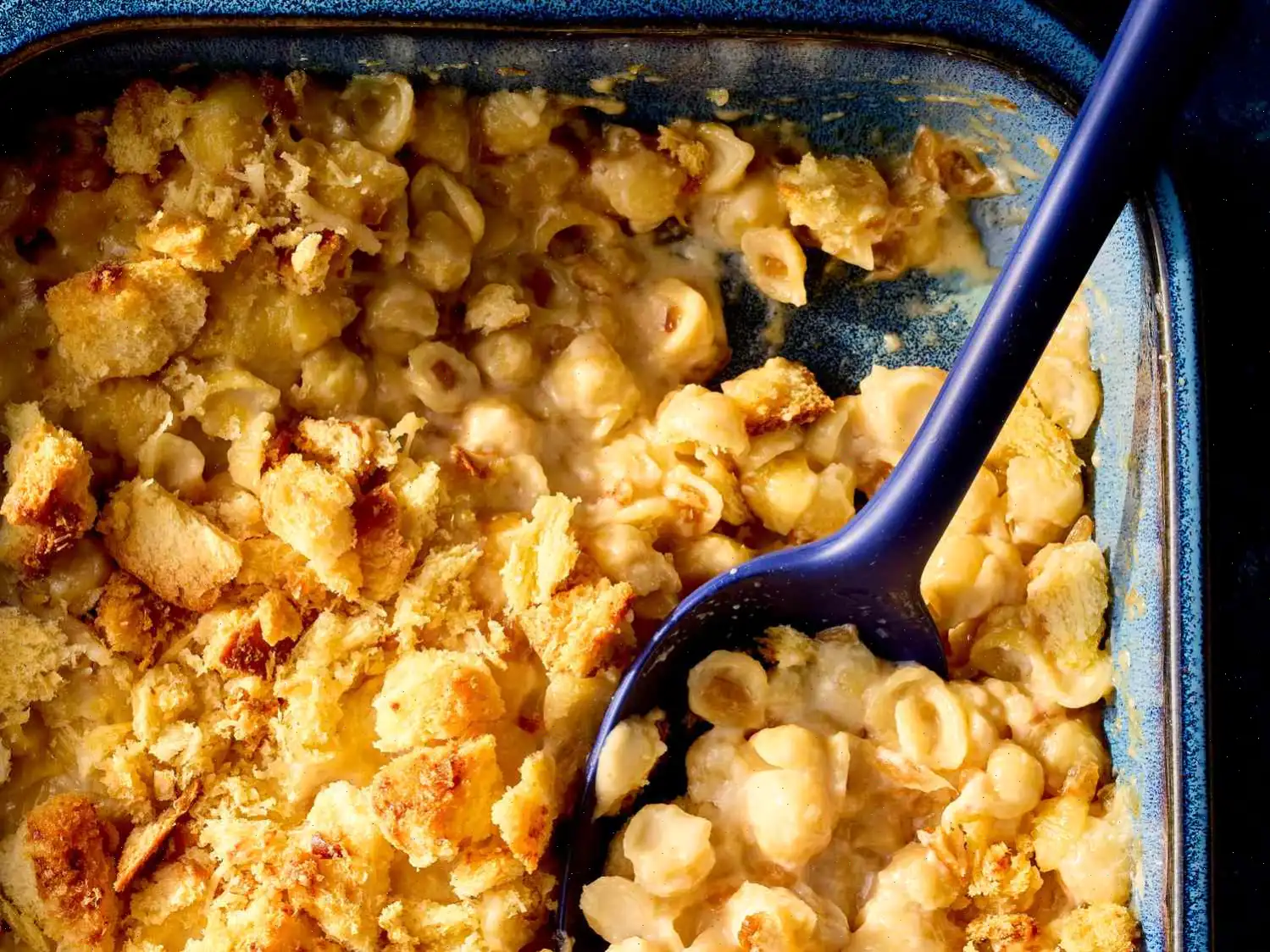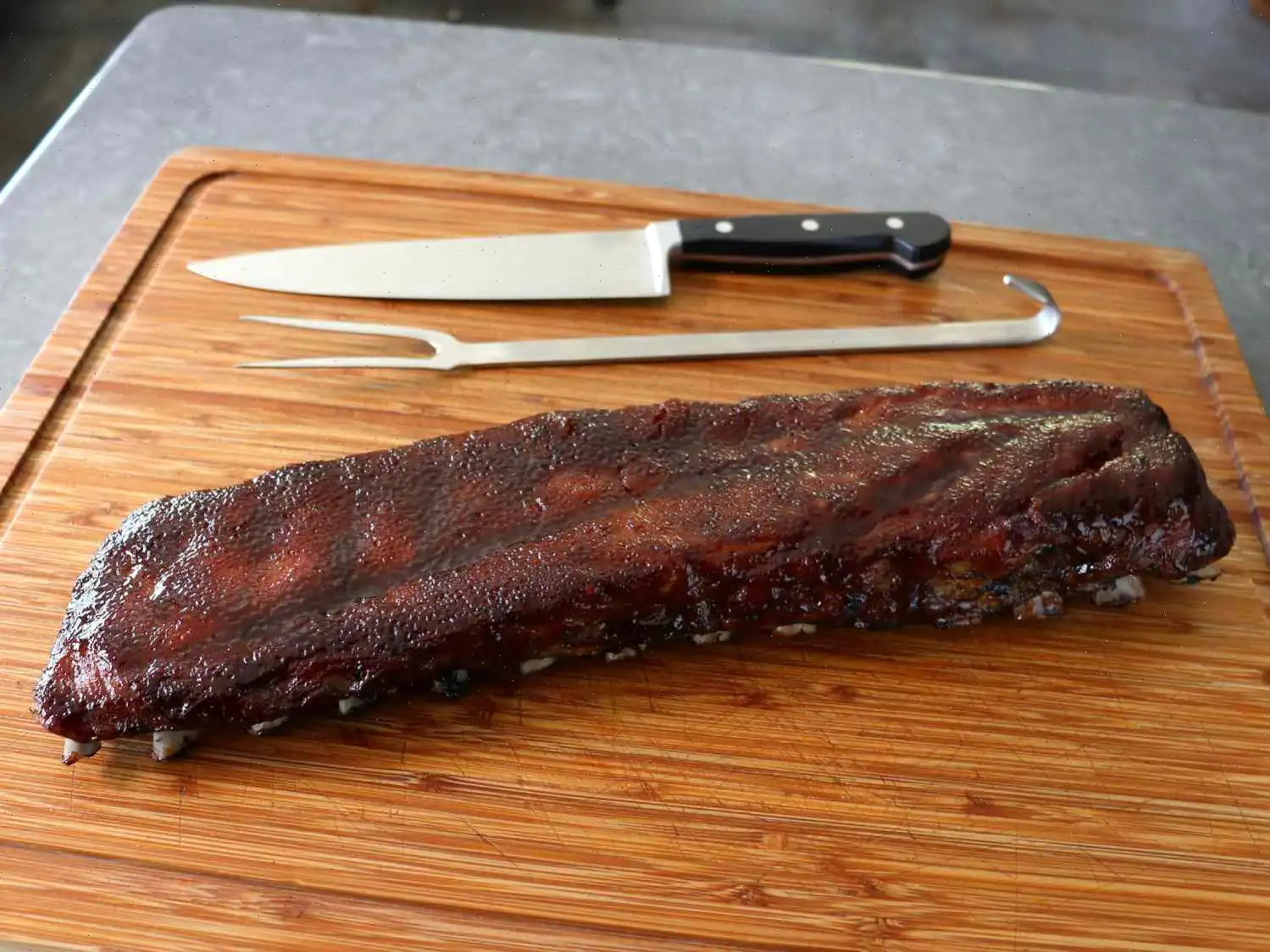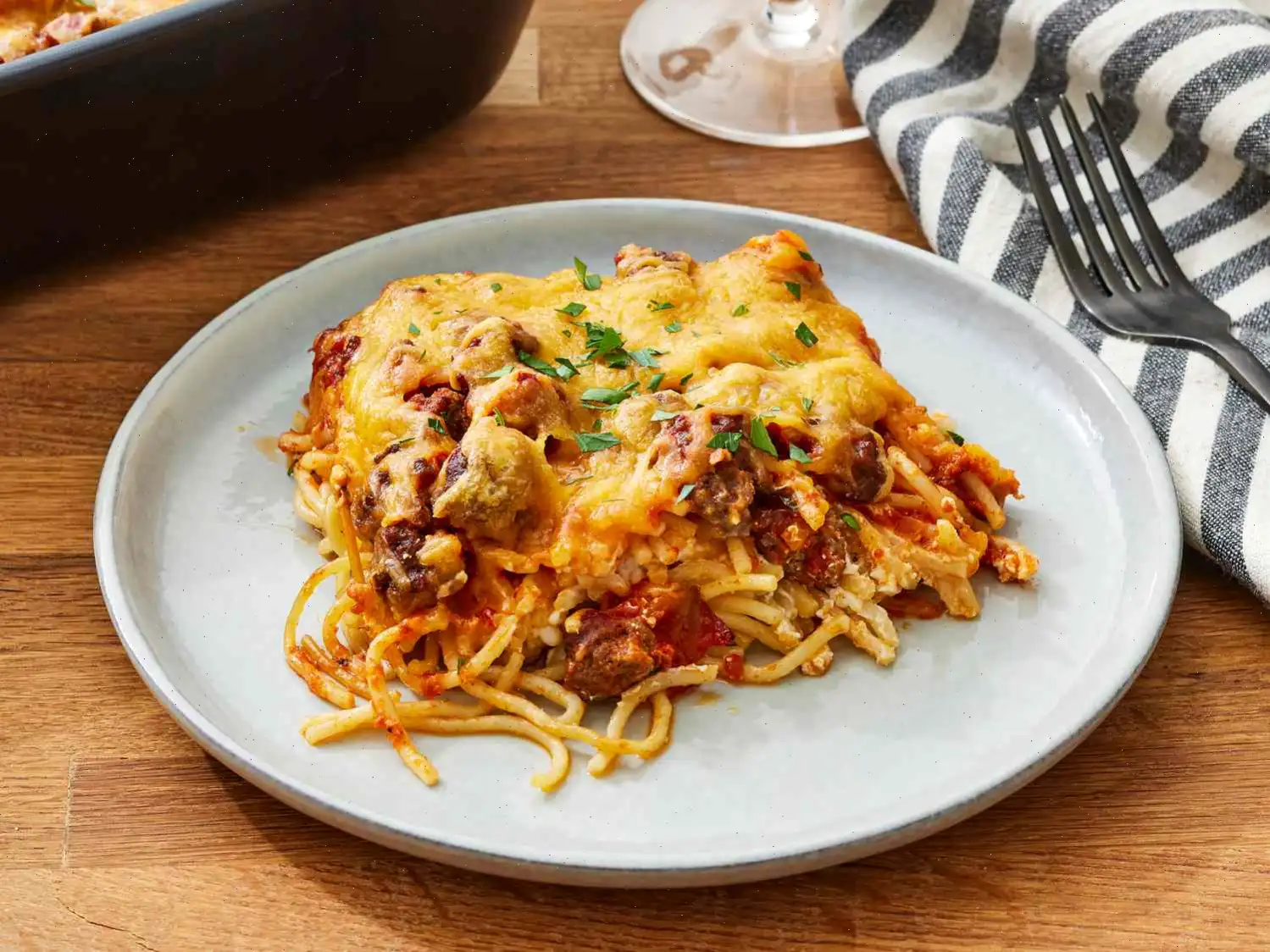
Caesar Potato Casserole Recipe
Ingredients:
- 1/4 cup butter
- 3 cloves garlic, minced
- 1/4 cup all-purpose flour
- 4 cups whole milk
- 1 tablespoon Dijon mustard
- 2 teaspoons Worcestershire sauce
- 1 teaspoon salt, divided
- 1 teaspoon freshly ground black pepper, divided
- 2 teaspoons lemon zest
- 2 tablespoons lemon juice
- 3 pounds russet potatoes, peeled and sliced 1/8-inch thick
- 1 cup thinly sliced onion
- 1 cup grated Parmesan cheese
- Chopped fresh chives, for garnish
- Cracked black pepper, for garnish
Directions:
Step 1: Gather all the ingredients needed for the recipe.
Step 2: Preheat the oven to 375F (190C). Grease a 9x13-inch baking dish.
Step 3: In a medium saucepan, melt butter over medium heat. Add the minced garlic and cook for about 30 seconds until fragrant.
Step 4: Stir in the flour and cook for 1 minute while stirring constantly.
Step 5: Gradually whisk in the milk, Dijon mustard, Worcestershire sauce, 1/4 teaspoon salt, and 1/4 teaspoon pepper. Keep whisking until the mixture thickens and becomes bubbly, about 3-4 minutes. Continue whisking for 2 more minutes.
Step 6: Whisk in the lemon zest and lemon juice, then remove the saucepan from the heat.
Step 7: Start assembling the gratin by layering 1/3 of the potato slices at the bottom of the prepared baking dish. Sprinkle with 1/4 teaspoon salt and 1/4 teaspoon pepper, followed by 1/3 of the sliced onions, 1/3 of the grated Parmesan cheese, and 1/3 of the sauce.
Step 8: Repeat the layers once more with the remaining potato slices, salt, pepper, onion, Parmesan cheese, and sauce.
Step 9: For the final layer, top with the remaining potatoes, season with the remaining salt and pepper, add the remaining onion slices, and pour the remaining sauce over the top. Sprinkle with the remaining Parmesan cheese.
Step 10: Bake the gratin uncovered for 50 to 60 minutes, or until the potatoes are tender and the top is golden brown.
Step 11: Let the gratin stand for 15 to 20 minutes before serving to allow the dish to set.
Step 12: Garnish with fresh chives and cracked black pepper before serving.
Nutrition Facts (per serving):
- Calories: 250
- Fat: 9g (12% daily value)
- Saturated Fat: 5g (26% daily value)
- Cholesterol: 25mg (8% daily value)
- Sodium: 452mg (20% daily value)
- Total Carbohydrate: 34g (12% daily value)
- Dietary Fiber: 3g (11% daily value)
- Total Sugars: 6g
- Protein: 9g (17% daily value)
- Vitamin C: 12mg (13% daily value)
- Calcium: 194mg (15% daily value)
- Iron: 2mg (9% daily value)
- Potassium: 801mg (17% daily value)
* Percent Daily Values are based on a 2,000-calorie diet. Your daily values may be higher or lower depending on your calorie needs.
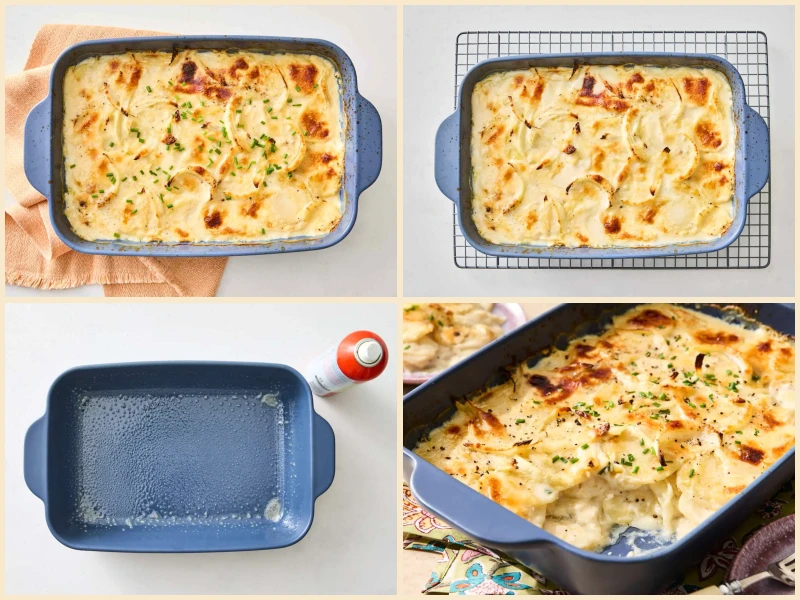
The Caesar Potato Casserole is a modern twist on the traditional scalloped potato dish. Combining the classic creamy texture of potatoes with the tangy, bold flavors of Caesar salad, this casserole is a delightful blend of the familiar and the innovative. The dish layers sliced potatoes in a creamy sauce made with Dijon mustard, Worcestershire sauce, and plenty of Parmesan cheese, topped off with a lemony zing that is both surprising and refreshing.
History of the Dish
The roots of the Caesar Potato Casserole can be traced back to the creation of the Caesar salad itself. The iconic Caesar salad, invented by Caesar Cardini in Tijuana, Mexico in the 1920s, became famous for its bold, tangy dressing made from anchovies, garlic, egg yolks, and Parmesan cheese. The flavor profile of the Caesar dressing has since been adapted into various dishes, including this casserole, which uses those same ingredients but brings them into the comforting realm of baked potatoes. While the exact origin of the casserole version is unclear, it represents a contemporary fusion of classic American comfort food with the fresh and vibrant flavors of a Caesar salad.
Regional Variations
This dish is primarily popular in American cuisine, where it is often served as a side dish at family gatherings, holiday meals, or casual dinner parties. In some regions, it may be spiced up with additional herbs or topped with breadcrumbs for extra texture. The base recipe, however, tends to remain consistent across different variations, with some opting for creamier versions and others for a more citrus-forward flavor. In the Midwest, where casseroles are a staple of comfort food, this dish is often served alongside grilled meats, while in coastal areas, it may be paired with seafood, bringing out the fresh, tangy elements of the Caesar dressing.
Differences from Similar Dishes
While similar in structure to traditional scalloped potatoes, the Caesar Potato Casserole stands out thanks to its use of Caesar dressing-inspired ingredients like Dijon mustard, Worcestershire sauce, and lemon zest. Traditional scalloped potatoes rely on a simple bchamel sauce or cheese-based sauce, usually with less acidity. The key difference lies in the bold, tangy flavors that make the Caesar Potato Casserole a standout dish. It is also a more robust and flavor-packed alternative to other potato casseroles like funeral potatoes or creamy potato gratins.
Where It Is Typically Served
This casserole is often served in a variety of casual and festive settings. It is a popular choice for dinner parties, especially during the holidays when people seek hearty yet flavorful side dishes. The tangy and creamy nature of the dish makes it a perfect accompaniment to grilled meats, roast chicken, or even burgers. It is also commonly found at potlucks and gatherings, where it can be easily shared and enjoyed by a crowd. In some cases, restaurants may offer it as a side to their main entre, typically in places where comfort food and inventive takes on classics are appreciated.
Interesting Facts About Caesar Potato Casserole
- Although the Caesar Potato Casserole draws inspiration from the Caesar salad, it was likely created in the 21st century as an adaptation of the salad's popular flavors.
- The dish is often made with russet potatoes, a variety that is known for its ability to absorb creamy sauces and hold up well during baking.
- Many variations of the Caesar Potato Casserole exist, with some incorporating bacon, chicken, or even seafood for added depth of flavor.
- The combination of Parmesan cheese and lemon zest creates a unique flavor profile that sets this dish apart from other potato casseroles. The lemon zest helps cut through the richness of the cheese and cream, offering a fresh contrast.
Conclusion
The Caesar Potato Casserole is a perfect example of how classic comfort food can be transformed with a few bold, unexpected ingredients. Its creamy texture, combined with the tangy, bold flavors of Caesar dressing, makes it a versatile side dish that pairs well with a wide range of meals. Whether you're hosting a dinner party, preparing for a holiday feast, or simply craving something new, this casserole is sure to impress.
FAQ about Caesar Potato Casserole Recipe
Comments
Tracy Jacobsma
10/06/2025 01:52:54 PM
A tangy twist on traditional scalloped potatoes
Samsquatch
03/03/2025 01:49:48 AM
Followed the reciepe as is. For me, the zest is too much. I'd rather add a bit more juice. Also, I grated a wedge of Parm. Not sure if it is better to use the dry processed stuff. Came out kind of bland salt wise and too lemon zesty. Next time, if I use the wedge Parm, I'll add some extra salt and omit the zest all together. I appreciate the lemon/Parm zing, but for me, it needs a bit of tweaking,
Janet Jackson
03/02/2025 12:10:10 AM
Turned out amazing with zero effort.


